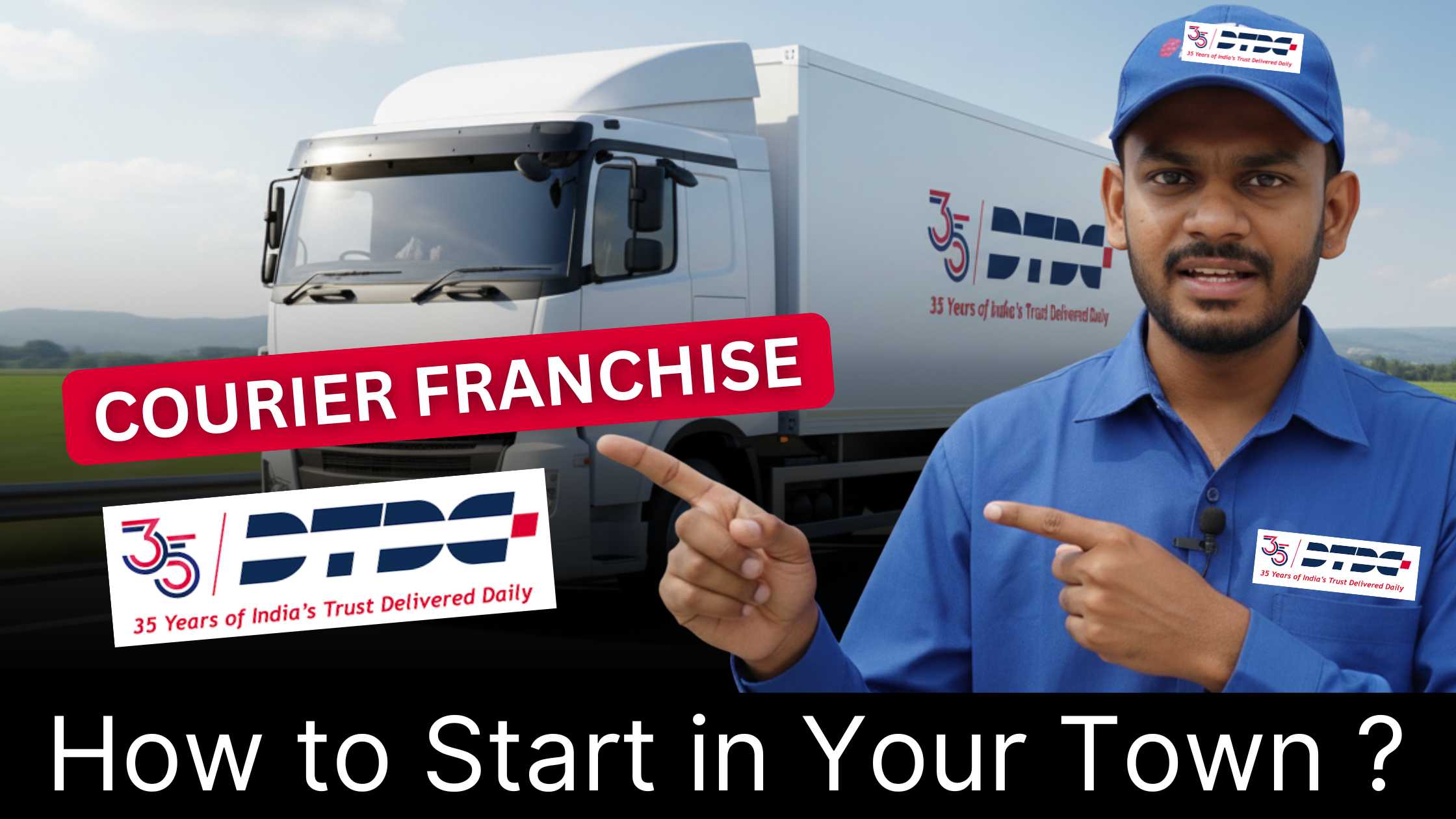Franchise vs Own Business – What’s Better in 2025 ? : Comprehensive Guide
Franchise vs Own Business : In 2025, the entrepreneurial world is expanding like never before. From traditional brick-and-mortar stores to digital-first business models, individuals are taking bold steps to become financially independent. Two popular paths stand out: launching a franchise business or starting an independent business. Each offers distinct advantages and drawbacks, and the right choice depends on a range of factors such as budget, risk tolerance, creativity, scalability, and market understanding.
Table of Contents
This comprehensive guide explores the key differences between franchise and own business models, helping aspiring entrepreneurs make informed decisions backed by high-ranking search keywords.
1. Understanding the Basics: Franchise vs. Own Business

A franchise is a business arrangement where a franchisee pays a franchisor for the right to operate under its established brand and business model. This includes using their trademarks, following their systems, and selling their products or services. Own business, on the other hand, refers to building a business from scratch. You develop your brand, product/service, marketing strategy, and infrastructure independently.
2. Initial Investment and Startup Costs
Franchise businesses often require a higher upfront investment, which includes the franchise fee, setup cost, royalty fee, and other compliance-related expenses. However, you gain access to an established brand, training, and a ready-to-use business model.
Also Read : 3 Franchise Business You Can Start in Your Town
In contrast, starting your own business allows for more flexibility in budgeting but requires investment in brand building, market research, and business development.
3. Risk and Reward Analysis
One of the main advantages of franchising is reduced risk due to the proven business model. The franchisor offers support and operational systems that increase the chances of success. However, this comes with limitations. With an own business, while the risk is higher, the potential rewards are greater due to full control over operations, marketing, and profit distribution.
4. Brand Recognition and Customer Trust
Franchisees benefit from established brand awareness, which translates to instant customer trust. In 2025, with brand loyalty playing a crucial role in purchasing decisions, being associated with a recognized brand gives franchises a head start. Own businesses, especially in niche markets, require time and effort to build customer trust and credibility.
5. Marketing and Advertising Support
Franchisors often include national or regional advertising campaigns and provide marketing templates for local promotions. This reduces the marketing burden on franchisees. Independent businesses, however, must handle their marketing strategies on their own. In the digital age, with tools like social media marketing, SEO, and influencer partnerships, it’s possible for small businesses to create significant brand awareness with limited budgets.
6. Operational Flexibility and Control
Franchisees must follow the franchisor’s rules, from pricing to store layout and even product offerings. This can limit creativity and adaptability.
Also Read: How to Start an Adhira & Appa Coffee Franchise
Entrepreneurs with their own business enjoy full control over decision-making, allowing them to adapt quickly to market trends and innovate freely.
7. Training and Support Systems
Franchise systems typically offer comprehensive training, manuals, operational support, and field assistance. This is beneficial for those with limited business experience. Independent businesses don’t offer such support and rely on self-learning or external consultancy.
8. Scalability and Growth Opportunities
Franchisees can expand by purchasing additional outlets or regions, but growth is often limited by the franchisor’s terms. Own businesses, especially those with digital models, can scale rapidly without territorial restrictions. Many digital-first businesses in 2025 are expanding internationally through eCommerce platforms.
9. Profit Potential and Revenue Sharing
Franchises involve ongoing fees such as royalties (usually a percentage of sales) and marketing contributions. This reduces net profit. With an independent business, you keep all the profits. This makes own businesses potentially more profitable in the long term if successful.
10. Legal and Compliance Requirements
Franchise agreements are legally binding and require strict compliance. Exiting a franchise contract can be difficult. Starting an own business involves its own legal challenges (registrations, licenses, trademarks) but provides more freedom in the long run.
11. Innovation and Product Development
Franchises typically follow a standard menu of products/services. Innovation is limited and must be approved by the franchisor. With your own business, you can innovate constantly based on customer feedback and market trends. This is crucial in 2025, where consumer demands change rapidly.
12. Customer Experience and Loyalty
Franchisees offer a consistent experience that loyal customers expect. However, own businesses can provide personalized customer service, creating deeper brand loyalty if executed well.
13. Digital Transformation and Technology Adoption in 2025
Franchise brands are increasingly adopting tech tools like AI-powered CRM, mobile apps, and digital wallets. This tech infrastructure is provided to franchisees. Independent businesses must invest in these technologies themselves. However, digital solutions are more accessible than ever, enabling solo entrepreneurs to implement cutting-edge tools affordably.
14. Business Exit and Resale Value
Franchise outlets often have higher resale value due to their brand equity and existing customer base. However, own businesses that build strong brands can also attract acquisition or investment offers.
15. Industry-Specific Trends in 2025

- F&B: Cloud kitchens and QSR franchises dominate. Independent restaurants face high competition but benefit from food delivery platforms.
- EdTech: Franchises like coaching centers and preschools grow, but personal coaching brands thrive via YouTube and digital courses.
- Fitness: Franchises like gym chains grow in Tier 2 cities. Online fitness influencers build scalable independent brands.
- Retail: Franchise clothing and eyewear stores remain popular, but D2C brands via Instagram and Shopify are booming.
16. Franchise vs Own Business in Tier 2 and Tier 3 Cities
In emerging markets, franchises offer structured growth and are often trusted more by consumers. Independent businesses, however, cater better to local tastes and preferences, offering unique opportunities.
17. Case Studies: Real-Life Success Stories
- Franchise: A Pune-based entrepreneur opened a Wow! Momo outlet and broke even within 10 months due to strong footfall and brand loyalty.
- Own Business: A fashion entrepreneur from Jaipur scaled a handmade apparel brand via Instagram and Amazon, earning over ₹1 crore annually without a physical store.
18. Top High-Reaching Keywords for 2025
- Franchise vs own business in India 2025
- Best business to start in 2025
- Is franchising profitable in India?
- Pros and cons of franchise business
- Independent business ideas 2025
- Franchise business models explained
- Franchise opportunities under 10 lakhs
- Which business is better for beginners?
- High ROI businesses in India 2025
- Franchise vs startup which is better
19. Decision Making Matrix
| Criteria | Franchise | Own Business |
|---|---|---|
| Investment | Medium to High | Low to High |
| Risk | Low to Medium | High |
| Support | High | Low |
| Creative Freedom | Low | High |
| Brand Recognition | Instant | Needs building |
| Marketing | Shared | Self-driven |
| Growth Potential | Limited by contract | Unlimited |
| ROI Timeframe | Shorter | Longer |
| Innovation | Restricted | Flexible |
Franchise vs Own Business – Conclusion:

The choice between a franchise and your own business in 2025 comes down to your personality, goals, resources, and industry. If you’re looking for a low-risk entry into entrepreneurship with built-in support, a franchise might be your best bet. If you crave freedom, innovation, and long-term wealth creation, building your own business could be more rewarding.
Buy Now : Ecommerce Website With 100 Products
In a world where digital transformation, consumer personalization, and scalability are key, both models can thrive if executed well. Entrepreneurs should assess their unique strengths, research market trends, and align their choice with long-term vision.
Disclaimer: This guide is for informational purposes only and does not constitute financial or legal advice. Always conduct thorough research and consult with professionals before making investment decisions.
Keywords : Franchise vs Own Business – Franchise vs Own Business 2025 – Franchise vs Own Business Guide



